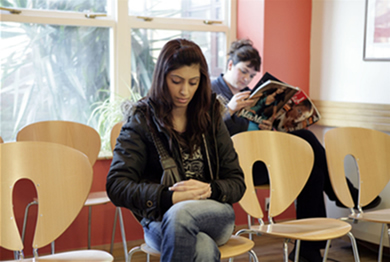Safeguarding Adolescents



This session aims to help you understand specific issues relating to child protection for adolescents and the wider context of safeguarding.
Learning Objectives
By the end of this session you will be able to:
- Explain the concept of safeguarding as it applies to adolescents
- List the effects of previous abuse on adolescent development
- Identify factors increasing the risk that an adolescent will be abused or abusive
- Recognise the different signs of abuse and how they might present in an adolescent
- Plan steps to take if you suspect an adolescent is being abused
Introduction
Adolescents need to feel safe at home, at school and in their neighbourhood. Being safe in his or her family, school and community decreases the likelihood that a young person will engage in risky health behaviours, including those that contribute to major public health challenges like substance misuse, teenage pregnancy and injury.
Broadly, safeguarding means protection from harm such as illness, abuse or injury. Safeguarding is also the term used to describe the process of identifying children and young people who have suffered or who are likely to suffer significant harm from abuse or neglect and taking the appropriate action to keep them safe.
Before commencing this session you should complete the following AH sessions:
- 01_002 - Guidance and Policy for Young People's Health (401-0002)
- 01_003 - Investing in Young People's Health (401-0003)
- 03_003 - Confidentiality (401-0012)
Dr Andrea Goddard is a consultant paediatrician at St Mary’s Hospital, Paddington and clinical lead for child protection at Imperial College Healthcare NHS Trust.
She is also Honorary Senior Lecturer at the Faculty of Medicine, Imperial College, London and Designated Doctor for Child Protection for NHS Westminster and Lead Paediatrician for the three London Sexual Assault Referral Centres.
Her interest in social paediatrics and child maltreatment is complemented by an interest in adolescent health and child rights.

- NiPHC Transition to Practice Program
- Posted By APNA - Australian Primary Healthcare Nursing Association - Transition to Practice Program
- Posted Date: 2024-11-28
- Location:Online
- Transition to Practice Program: helping nurses make the move into primary health care.
- Non-pharmacological Approaches to the Management o...
- Posted By eIntegrity Healthcare e-Learning
- Posted Date: 2024-11-28
- Location:Online
- This session presents a wide spectrum of non-pharmacological approaches to the management of chronic...
- Medications and Older Adults course
- Posted By eIntegrity Healthcare e-Learning
- Posted Date: 2024-11-28
- Location:Online
- This session describes the physiological changes that occur with ageing and the effects these change...
- Common Pain Conditions in Older People course
- Posted By eIntegrity Healthcare e-Learning
- Posted Date: 2024-11-28
- Location:Online
- This session describes some of the most common conditions that cause pain in older people, the manag...
- Assessment of Pain in Older Adults course
- Posted By eIntegrity Healthcare e-Learning
- Posted Date: 2024-11-28
- Location:Online
- This session describes the assessment of pain in older adults and the range of assessment tools avai...








